Best 15 Online Selling Platforms For Ecommerce Brands And Sellers
23 Dec 2024
|by diadmin
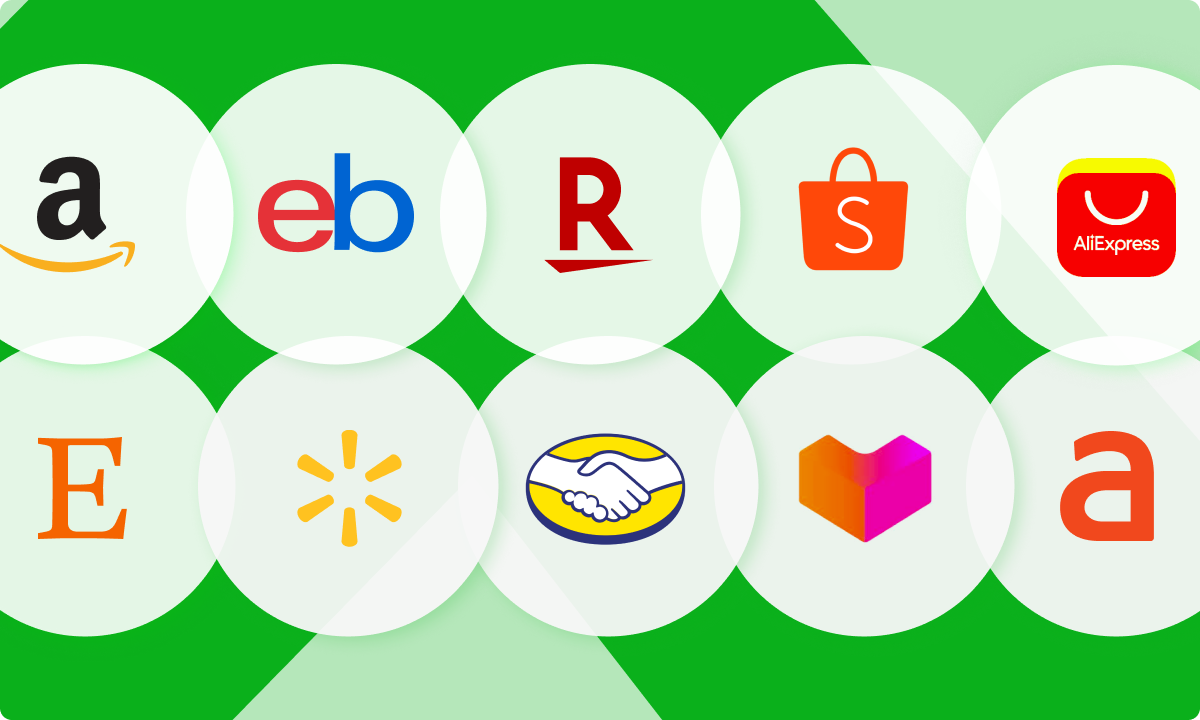
Selling products online has never been more accessible, thanks to the multitude of online selling platforms available today. Whether you’re an individual looking to offload some personal items or a business owner planning to expand your reach, there’s an online marketplace out there tailored to your needs. In this guide, we’ll walk through some of the top online selling sites, how they work, and the considerations you should keep in mind when choosing the right platform for your business.
What Are Online Selling Platforms?
Online selling platforms are digital marketplaces where individuals and businesses can sell products online. These platforms come in many forms, from local online selling sites like Facebook Marketplace to larger ecommerce platforms like Amazon and eBay. Depending on your goals, you may choose to open your own online store or leverage established online marketplaces with a built-in customer base.
Four Different Types of Online Selling Platforms
There are several online selling sites available today, each with its own unique features, benefits, and fee structures. Let’s explore some of the most popular ones:
E-commerce Online Selling Platforms
These platforms, such as Shopify, allow you to create your own store with full control over your branding and product listings. They are ideal for those wanting to build a long-term online business and have the freedom to customise everything, from the website layout to the payment processing options.
Marketplaces
Platforms like Amazon, eBay, and Etsy fall into this category. They offer a broad audience and an easy way to start selling, but they come with specific marketplace fees, transaction fees, and listing fees that you need to consider.
Social Media Online Selling Platforms
Selling through platforms like Facebook Marketplace and Instagram has become increasingly popular. These versatile platforms provide social media integration, allowing you to connect with potential buyers through social channels. They are great for those looking to sell products directly to their audience without the need for a full website.
Local Online Selling Sites
For those wanting to sell stuff locally, platforms like Craigslist or Facebook Marketplace offer convenient ways to reach buyers in your area.
4 Key Things to Consider When Choosing a Platform
When selecting the best online selling site for your business, it’s important to evaluate various factors to ensure it aligns with your goals. Here are some key aspects to keep in mind:
1. Fee Structure: Know Your Costs
Different platforms have varying fee structures, including listing fees, transaction fees, and monthly subscription fees. For instance, some sites charge a final value fee or a percentage of the final sale price. Understanding these costs is crucial to maintaining competitive pricing and maximizing your profit margins. If you’re selling on an established marketplace, make sure you know the marketplace fees and how they’ll impact your selling price.
2. Inventory Management and Versatility
If you have a large inventory, choose a platform that offers robust inventory management tools. For those selling diverse product categories, such as clothing and lifestyle accessories, a user-friendly platform with easy product listing features can streamline your workflow and make managing your online store efficient.
3. Shipping Costs and Payment Processing
Some platforms provide integrated online payments and shipping solutions, which simplify the logistics of selling stuff online. However, shipping costs can vary significantly based on location, so be sure to calculate these into your pricing strategy. Additionally, understand how the platform handles sales tax and payment processing to avoid unexpected fees.
4. Marketing Tools and Social Media Integration
A good platform will offer marketing tools that help you reach a wide range of products and customers. Platforms with social media integration make it easier to promote your products and engage with your audience, which can drive higher sales. Having a solid marketing strategy is essential when trying to sell products online and grow your online business.
Top Marketplaces For Selling Online in 2024
From global giants like Amazon Australia and eBay to niche platforms like Etsy and Depop, here are the top online marketplaces that can help you reach more customers and grow your ecommerce business. Explore the options below to find the perfect platform for your products.
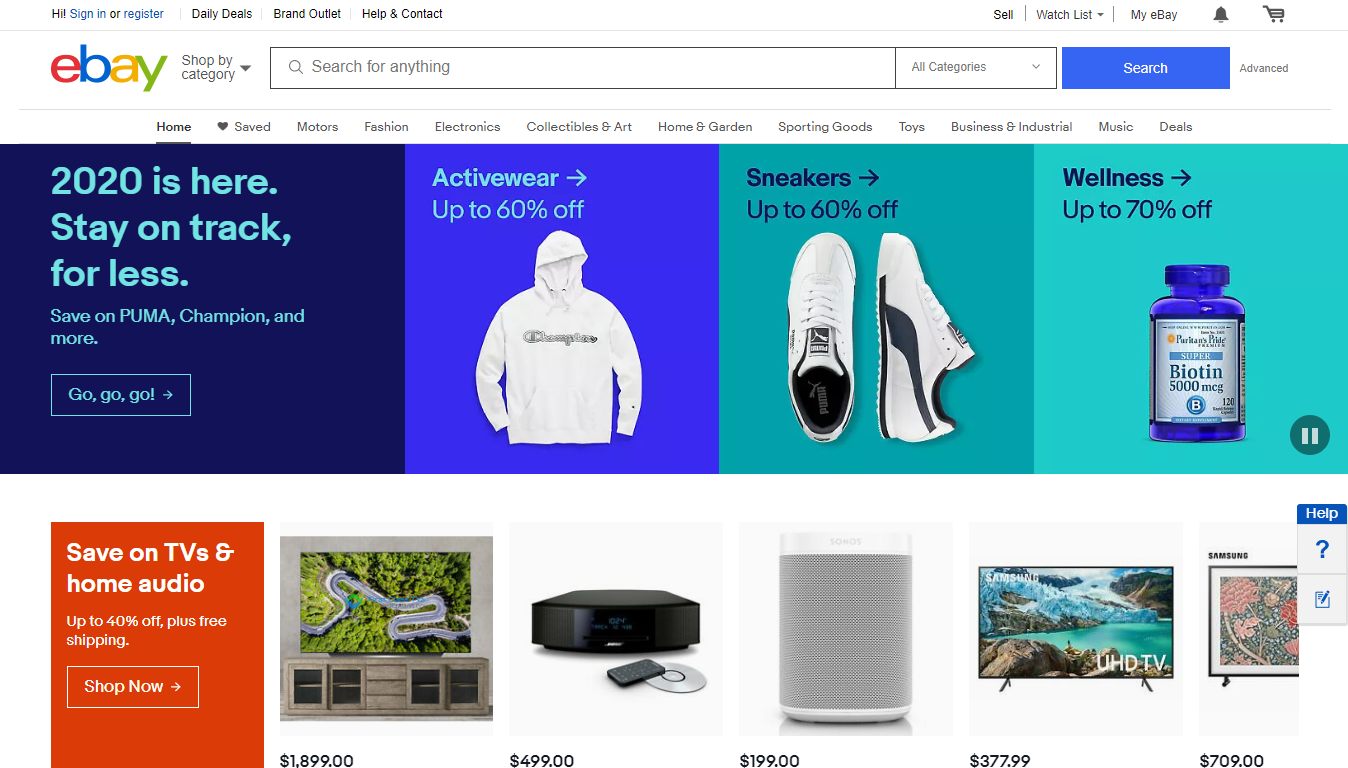
1. eBay Australia
eBay Australia is one of the biggest online marketplaces, making it super easy for buyers and sellers to connect and trade all sorts of stuff. Whether you’re looking for the latest gadgets, fashion pieces, pre-owned electronics, or rare collectibles, they’ve got it all. It’s not just about great deals and prices; it’s also a community where everyone, from small business owners to individual sellers, can really thrive. With handy seller tools and safe payment options, eBay Australia remains a go-to spot for online shopping.
Fees Charged: Listing fees and final value fees (9-12%) based on the product category.
Best For: Sellers seeking to reach a large audience without building a custom website.
Must Knows:
- Wide audience reach and international sales options.
- Various fees can impact profit margins.
- Ideal for sellers offering a diverse product range.
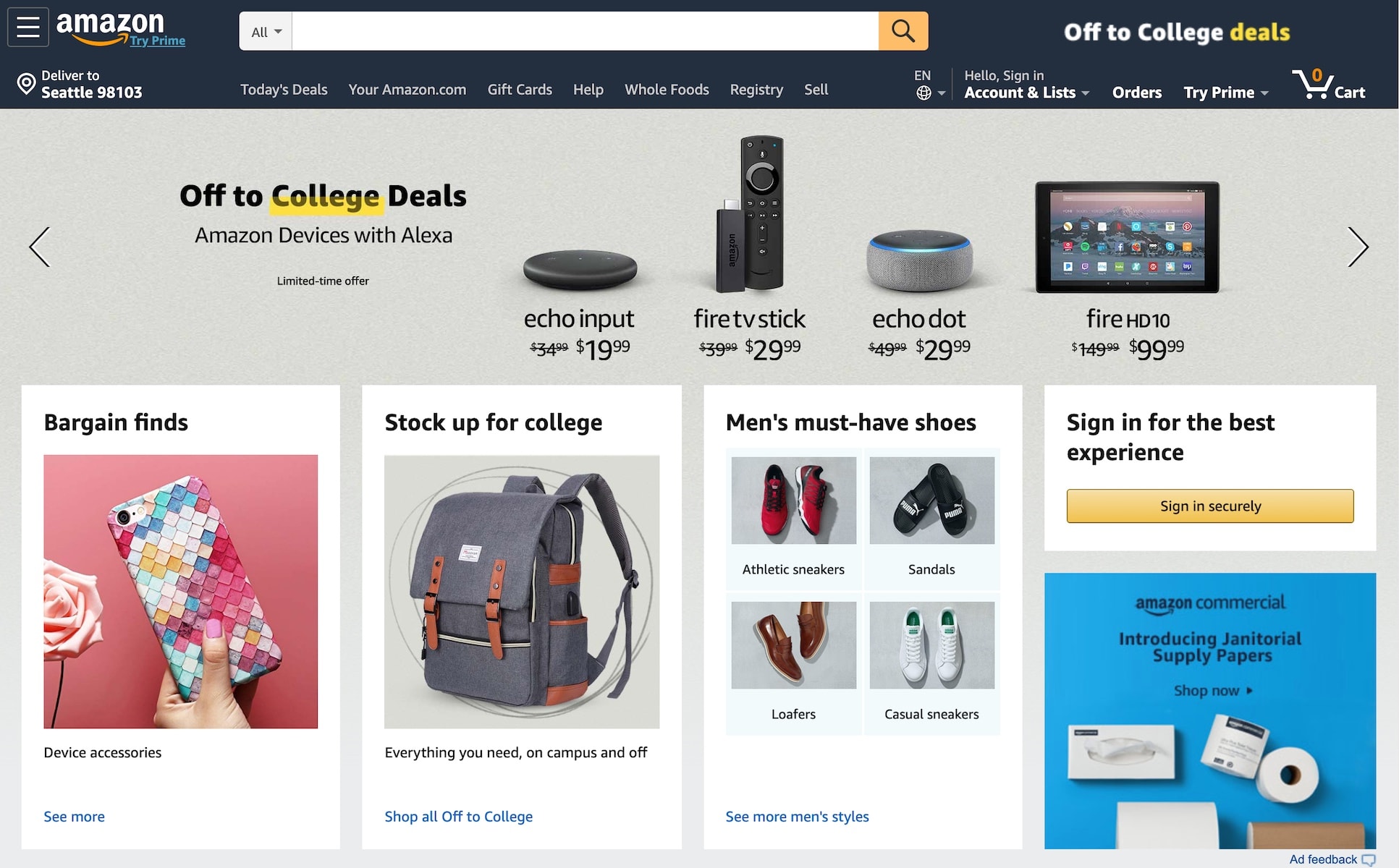
2. Amazon Australia Online Selling Platforms
Amazon Australia gives sellers a chance to tap into both local and global markets with a great platform that includes solid logistics support through Fulfilment by Amazon (FBA). This service makes life easier by taking care of storage, packaging, and shipping, so sellers can concentrate on growing their business and keeping customers happy. With FBA, sellers can take advantage of Amazon’s huge distribution network and smoothly expand into international markets.
Fees Charged: AUD $49.95 monthly subscription and referral fees (6-15%) based on categories.
Best For: High-volume sellers and businesses looking to leverage Amazon’s logistics and exposure.
Must Knows:
- Significant reach and logistics support via FBA.
- Competitive environment with high seller fees.
- Suitable for sellers with a scalable product range.
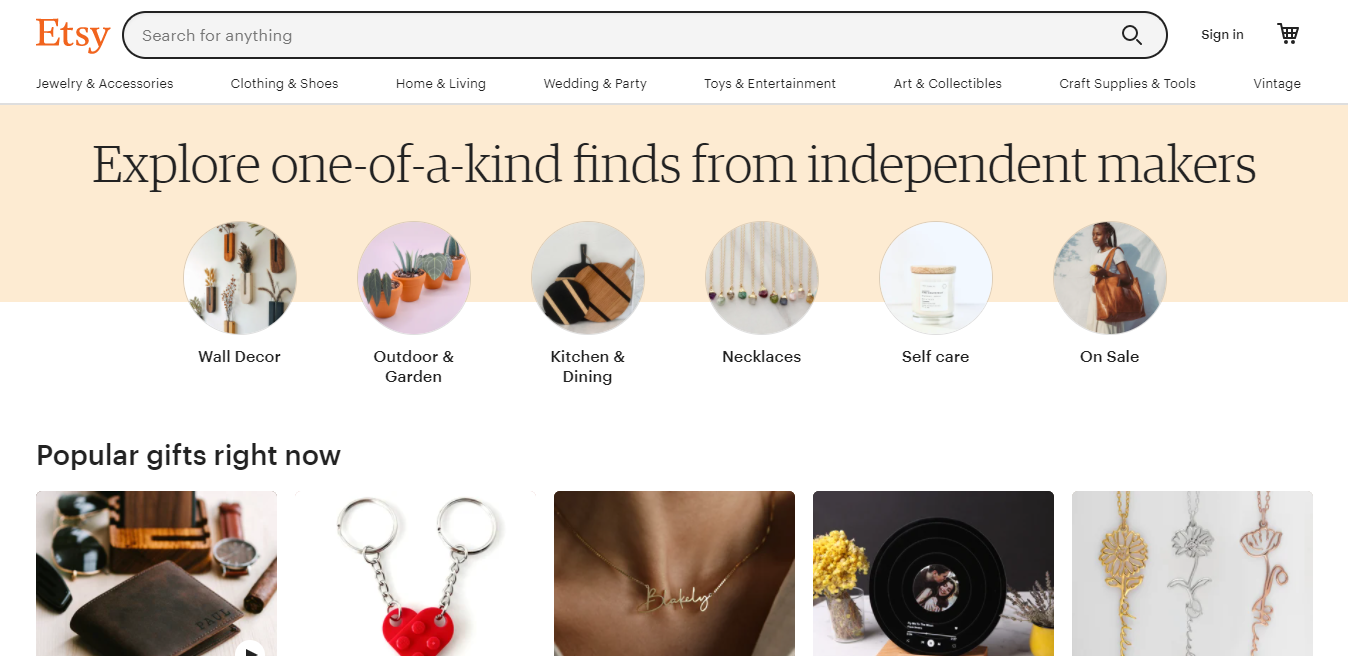
3. Etsy Australia Online Selling Platforms
Etsy is a cool marketplace focusing on handmade, vintage, and unique stuff. It’s perfect for Aussie artisans and creative businesses wanting to show off their talents to the world. You’ll find a diverse range of products, from handcrafted jewellery to vintage collectibles, making it a unique shopping spot for one-of-a-kind treasures. This lively community backs small entrepreneurs, boosting sustainability and creativity in e-commerce.
Fees Charged: AUD $0.28 per listing, 6.5% transaction fee, and 4% + AUD $0.30 for payment processing.
Best For: Artisans, crafters, and sellers of vintage goods.
Must Knows:
- Ideal for reaching a niche market.
- High fees can reduce profit margins.
- Limited to specific product types like handmade and vintage.
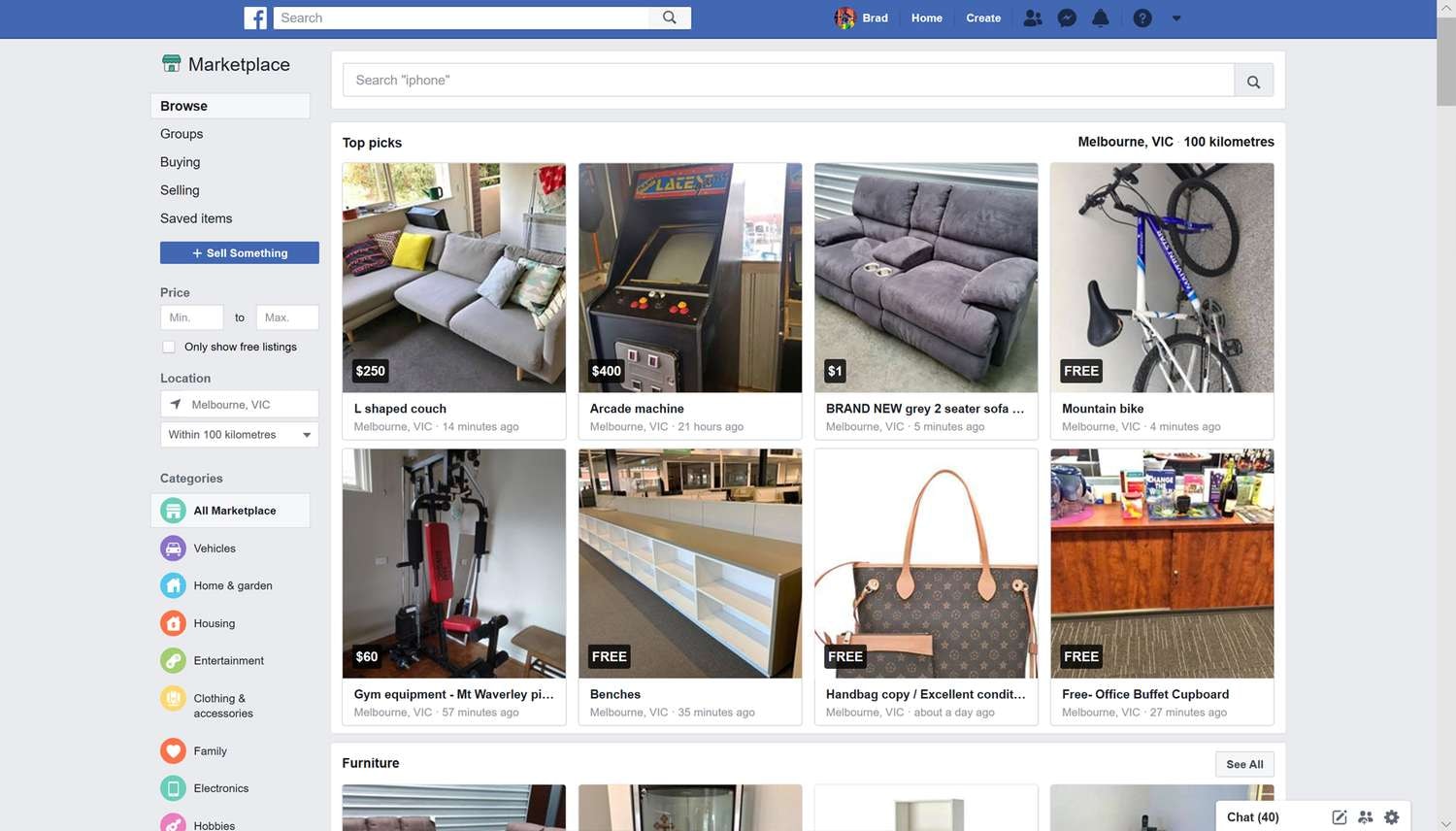
4. Facebook Marketplace
Facebook’s free platform for selling items locally makes it super easy to reach a wide audience of potential buyers. You can list your stuff, chat with interested buyers, and handle transactions—all within the familiar Facebook interface. It really enhances the whole selling experience!
Fees Charged: Free for local sales; fees apply if using Facebook Shops.
Best For: Individuals and small businesses looking for local sales.
Must Knows:
- Free setup and easy to use.
- Manual handling of logistics and payments.
- Best suited for local transactions and smaller sales.
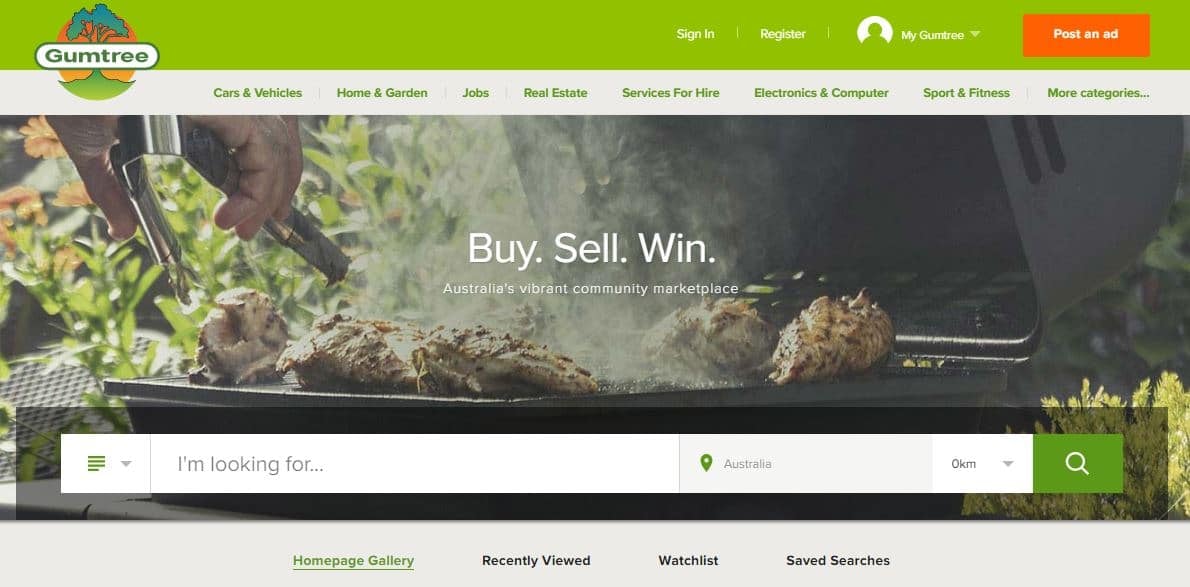
5. Gumtree Australia Online Selling Platforms
Gumtree is like your local marketplace for buying and selling all sorts of stuff. It’s super popular in Australia, where people use it to trade things like furniture, electronics, vehicles, and even services. With its easy-to-use setup, Gumtree helps connect buyers and sellers right in the community, making deals easy and hassle-free.
Fees Charged: Free for basic listings; paid upgrades for promotions.
Best For: Sellers wanting quick, local sales.
Must Knows:
- Free for basic use, cost-effective for local sales.
- Limited seller protections and ecommerce features.
- Ideal for casual sellers and local business transactions.
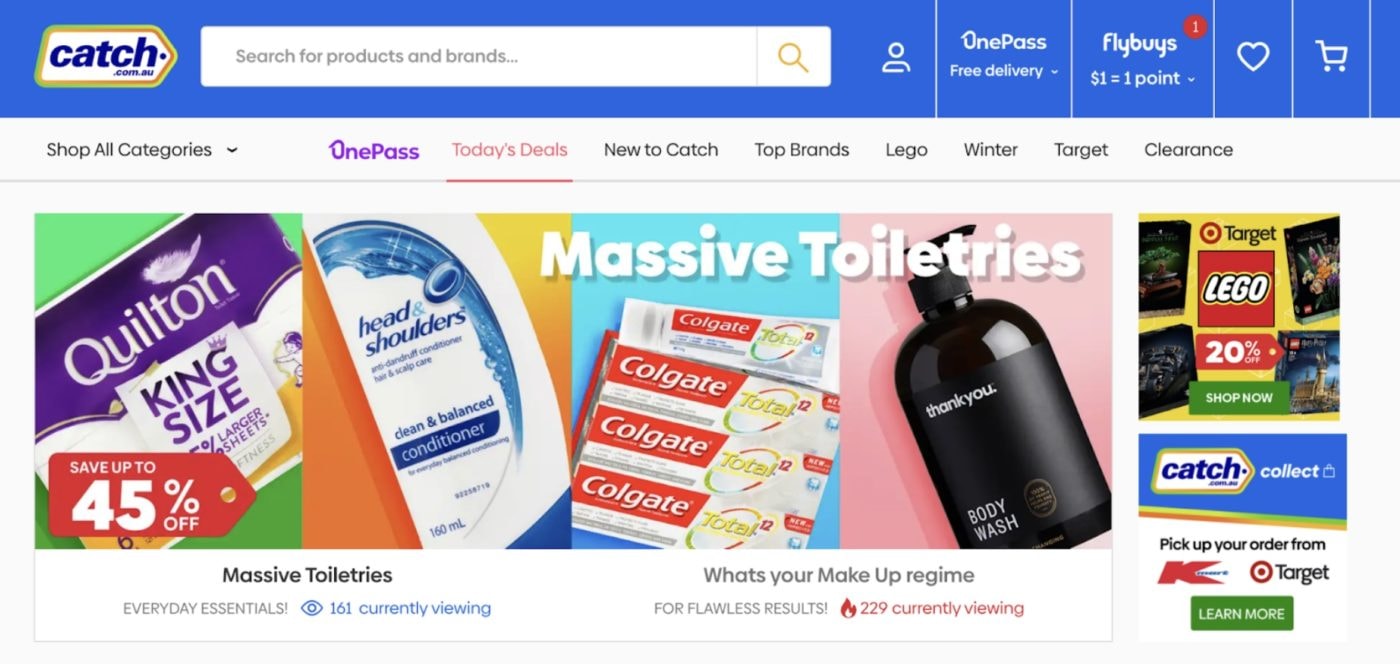
6. Catch Marketplace (Catch of the Day Online Selling Platforms)
Catch is an Aussie marketplace where sellers can reach a huge local audience, especially if they’re dealing in popular consumer products. With its solid platform, sellers get to connect with a mix of buyers hunting for quality items at great prices. Thanks to its reliable service and wide product range, Catch is a top pick for businesses wanting to grow in the Australian market.
Fees Charged: Commission fees ranging from 7-15% depending on the product category.
Best For: Retailers and brands with popular products looking to reach an Australian audience.
Must Knows:
- Strong customer base and high traffic volume.
- Approval process required for sellers.
- Suitable for established businesses with multiple product categories.
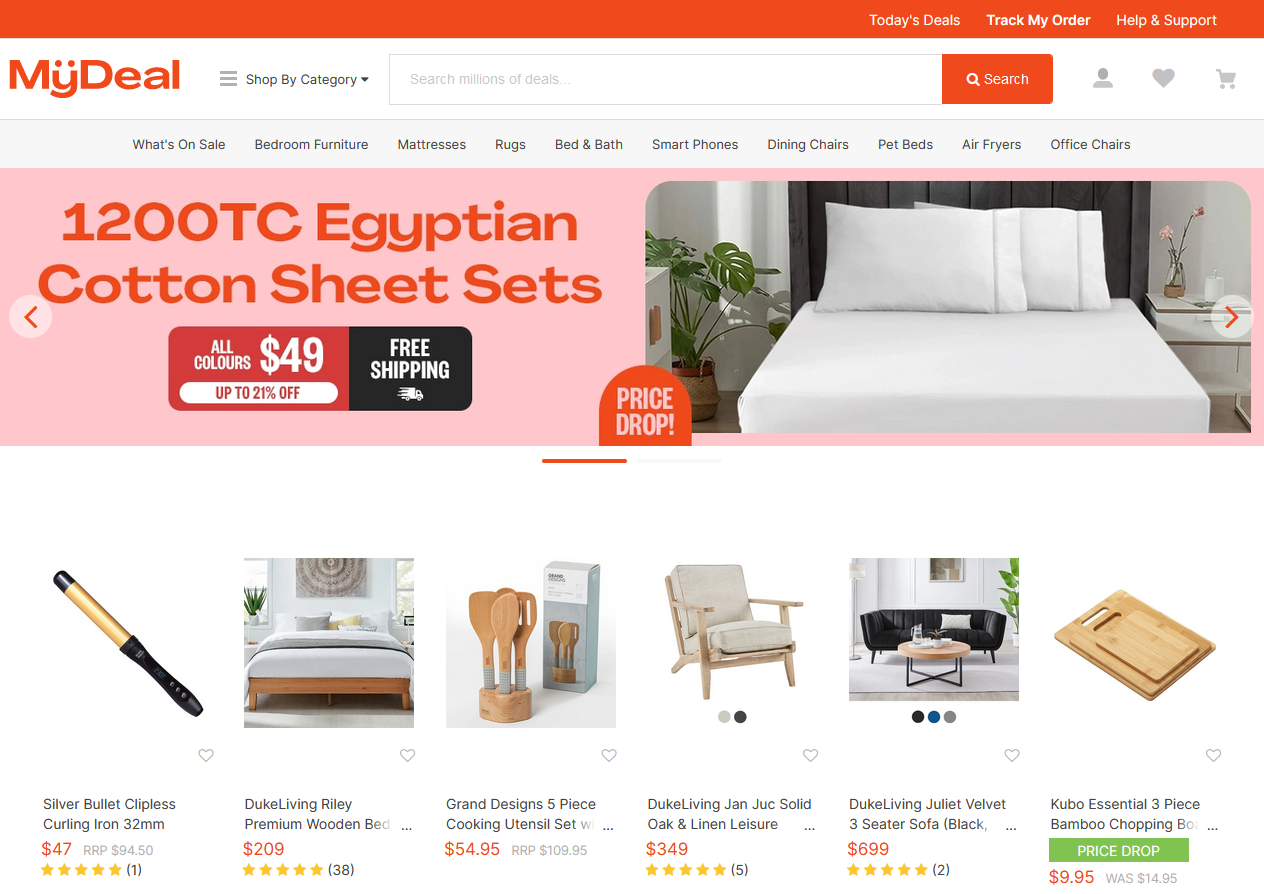
7. MyDeal Australia
MyDeal is a marketplace that’s all about home, furniture, and lifestyle products. It gives sellers a platform specifically for these niches. It’s a great chance for vendors to show off everything from stylish furniture and home décor to all sorts of lifestyle products, reaching people who are keen on upgrading their living spaces.
Fees Charged: Commission fees between 10-12%.
Best For: Sellers specializing in home and lifestyle products targeting Australian consumers.
Must Knows:
- Niche market with a focus on home goods.
- Commission fees impact profit margins.
- Limited to specific categories like furniture and home lifestyle products.
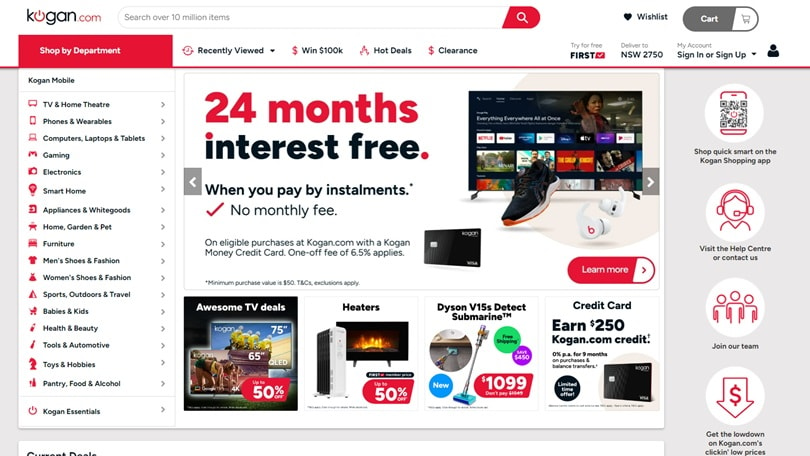
8. Kogan Marketplace
Kogan is a well-known ecommerce hub in Australia, especially loved for its huge variety of electronics, appliances, and lifestyle goodies. Founded to deliver great products at competitive prices, Kogan has made quite a name for itself among Aussies. You can find everything here, from the newest gadgets and home appliances to fitness gear and outdoor must-haves.
Fees Charged: Commission fees vary by product type.
Best For: Sellers in the electronics and home appliances sectors looking for high visibility.
Must Knows:
- High visibility through Kogan’s brand.
- Strict seller requirements and commission fees.
- Best for established businesses with compatible product lines.
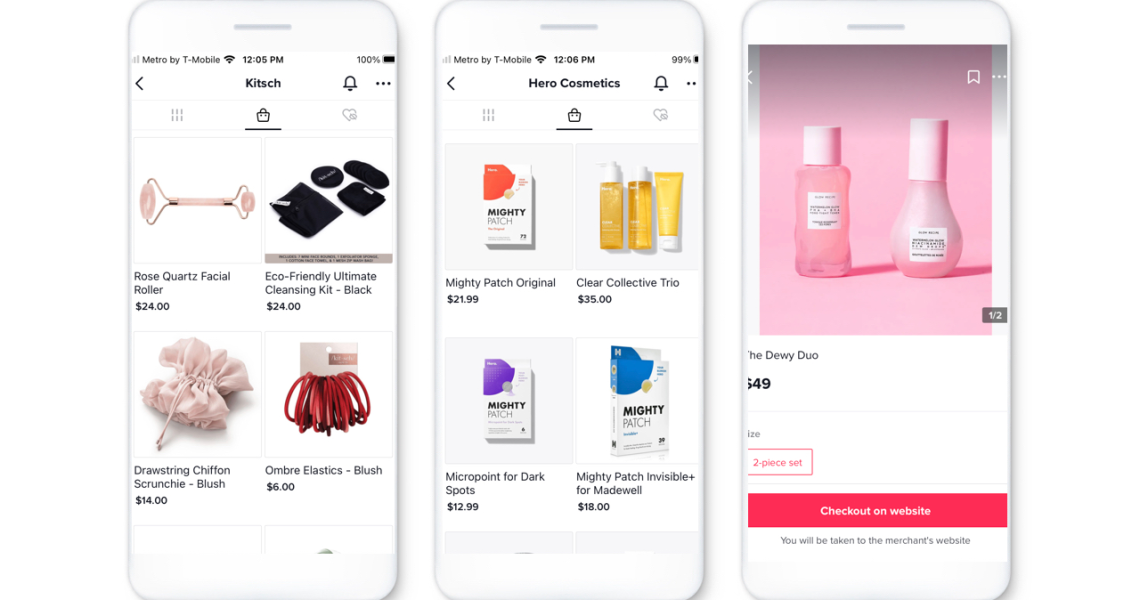
9. TikTok Shop
TikTok Shop lets sellers market and sell products right on TikTok, making shopping a breeze. By using engaging videos and interactive live streams, sellers can show off their products in a more dynamic way, reaching a bigger audience. This cool e-commerce feature helps businesses tap into TikTok’s huge user base, turning viewer engagement into sales opportunities while boosting brand visibility and customer interaction.
Fees Charged: No listing fees; commission fees apply on sales.
Best For: Sellers targeting younger audiences with visually engaging products, like fashion or beauty items.
Must Knows:
- Direct access to TikTok’s engaged audience.
- Requires content creation and video engagement for success.
- Ideal for visually appealing, video-friendly products.
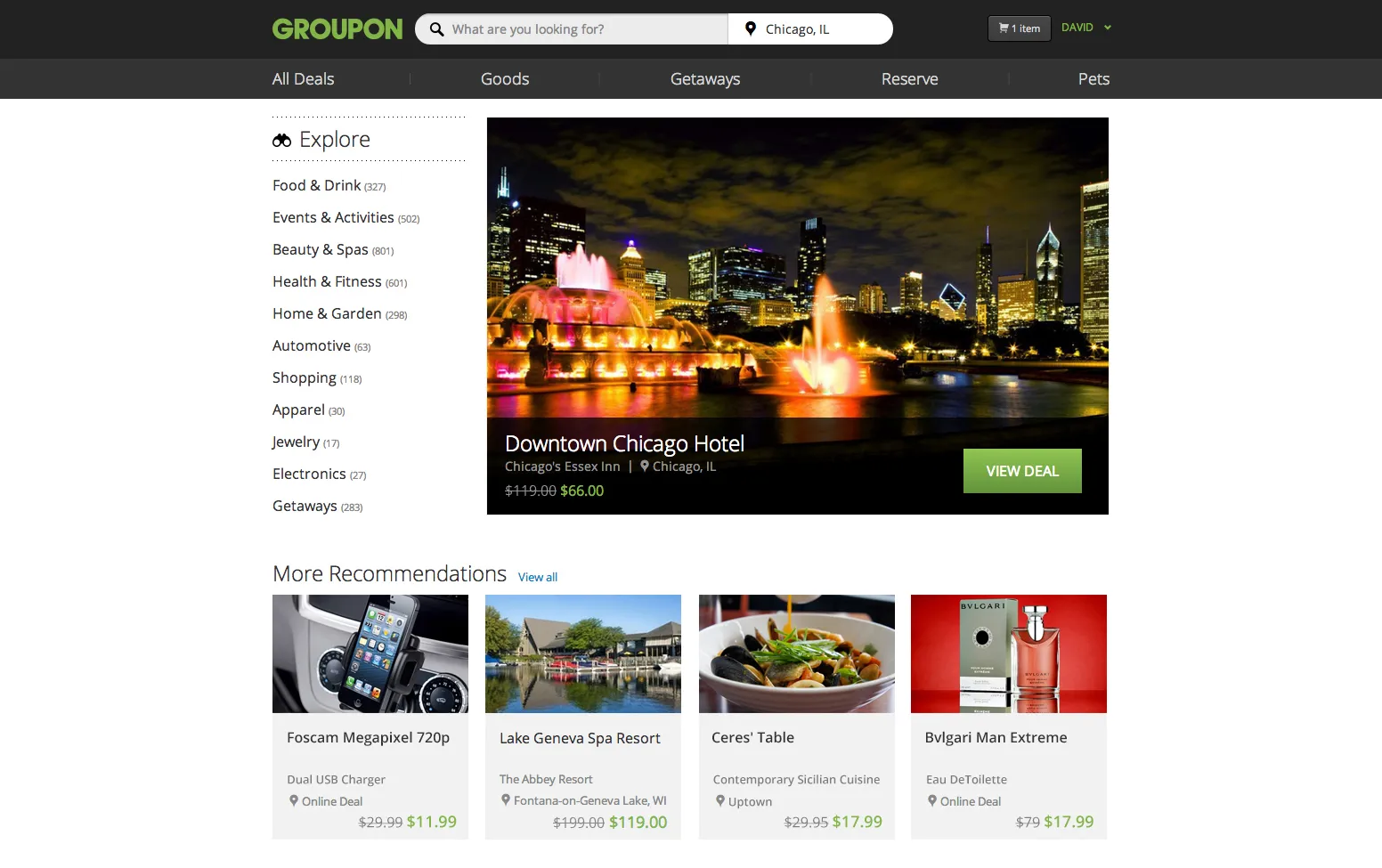
10. Groupon Australia
Groupon provides businesses with an effective platform to promote deals and discounts on their products and services. By focusing on local and time-sensitive offers, Groupon helps businesses attract new customers and drive sales. This approach not only allows businesses to target specific demographics but also creates a sense of urgency that can boost consumer engagement.
Fees Charged: Commission fees are negotiated per deal.
Best For: Sellers of services, events, and products that work well in a promotional format.
Must Knows:
- Large audience seeking deals and discounts.
- Requires deal-specific negotiation.
- Best for local businesses and time-limited offers.
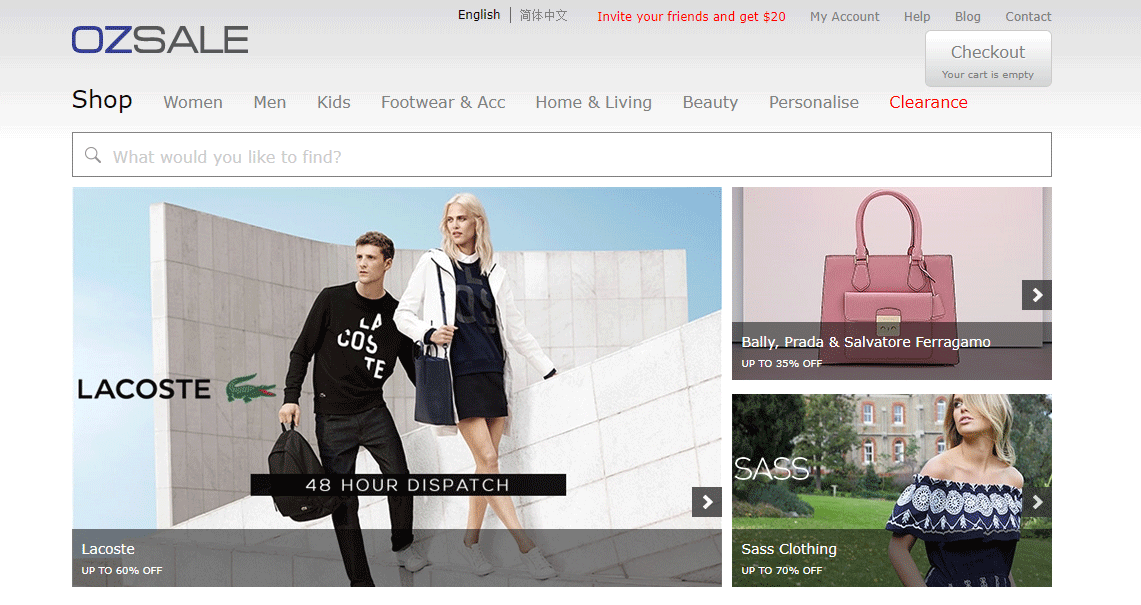
11. Ozsale
Ozsale is an online platform that brings sellers and Aussie customers together with exciting flash sales. It mainly focuses on fashion and lifestyle, offering everything from clothes and accessories to home decor and beauty goodies. With its limited-time deals, Ozsale lets customers score big savings on quality items while helping sellers reach more people and increase their sales in the Australian market.
Fees Charged: Commission fees based on sales volume and promotional services.
Best For: Fashion and lifestyle brands looking for a boost in sales through promotional events.
Must Knows:
- High traffic during sales events.
- Commission fees apply, and promotional costs may be necessary.
- Limited to flash sale promotions and specific product categories.
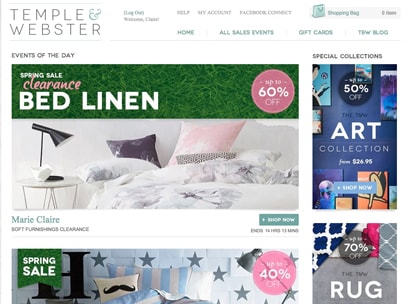
12. Temple & Webster
Temple & Webster is a leading Australian marketplace that’s all about furniture and home décor. They have a huge selection of stylish and top-notch products to suit everyone’s taste. By focusing on these categories, Temple & Webster makes it super easy for customers to find everything they need to turn their living spaces into cozy, personalised havens.
Fees Charged: Commission fees per sale, based on the product type.
Best For: Businesses specialising in furniture, home décor, and lifestyle products.
Must Knows:
- Access to a niche market interested in home goods.
- Commission fees can reduce profits.
- Best suited for home and lifestyle categories.
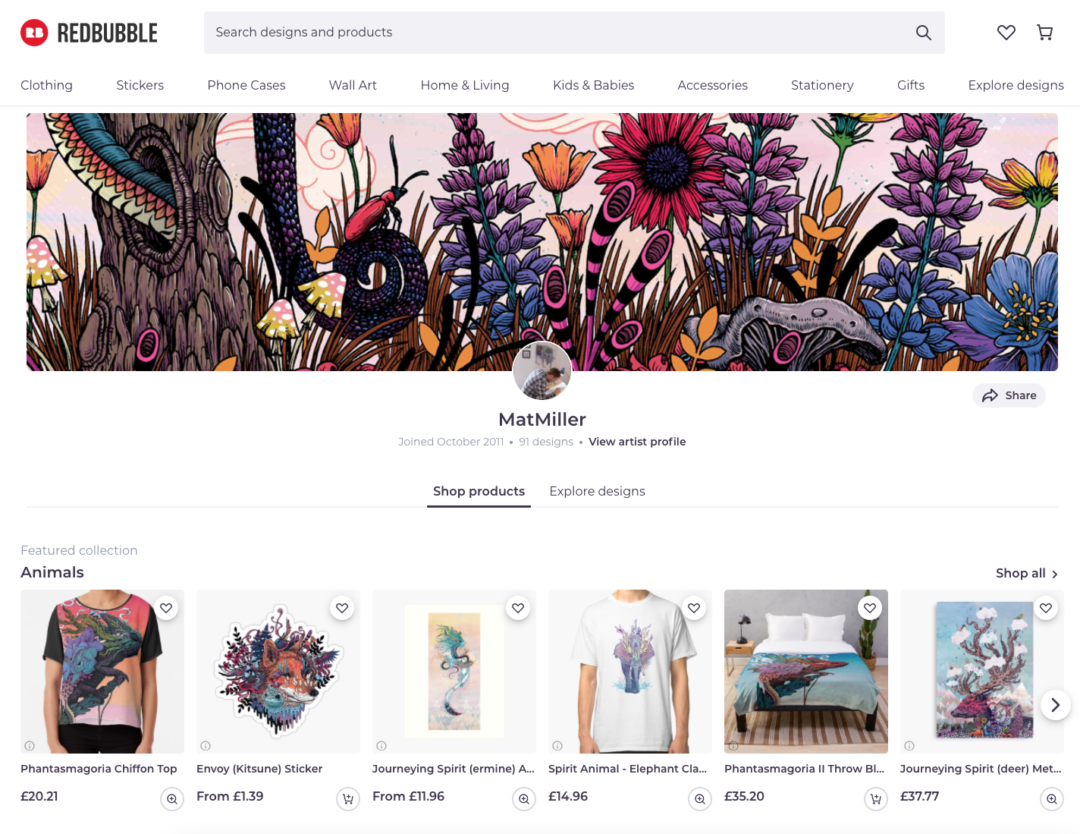
13. Redbubble
Redbubble is a go-to spot for anyone wanting to find unique designs by artists from all over the world. It’s a print-on-demand marketplace where you can get cool stuff like clothing, stickers, and home decor printed with these awesome designs. Artists love it because they can reach a global audience, and shoppers like you and me get to choose from a huge variety of creative and personalised items.
Fees Charged: No upfront costs; Redbubble retains a portion of each sale.
Best For: Artists and designers looking to sell print-on-demand merchandise.
Must Knows:
- Easy setup and no upfront fees for sellers.
- Lower profit margins due to platform costs.
- Limited to creative and artistic products.
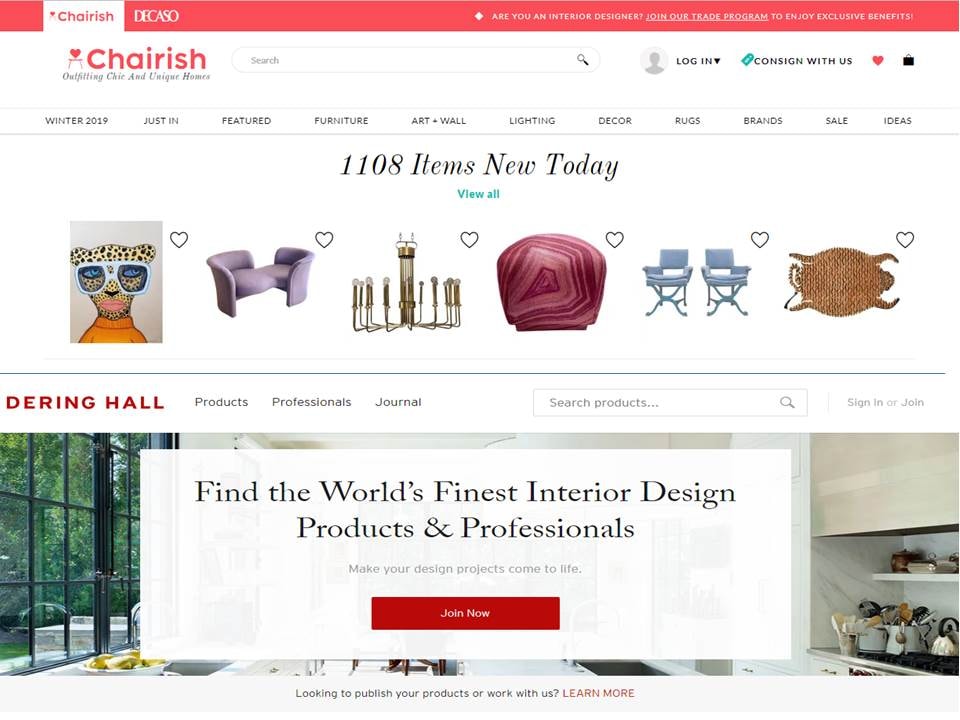
14. Chairish
Chairish is all about high-end vintage and luxury home décor, offering a cool spot for sellers to show off and sell amazing furniture and decorative items. Focusing on quality and style, Chairish gives buyers a curated selection of unique pieces, from mid-century modern classics to timeless antiques. It’s not just about connecting buyers with exclusive items; it’s also about supporting a community of sellers who love distinctive home furnishings.
Fees Charged: 20-30% commission per sale.
Best For: Sellers of upscale, vintage, and luxury home items.
Must Knows:
- Targeted audience interested in luxury and vintage pieces.
- High commission rates can affect profitability.
- Niche platform best suited for upscale home products.
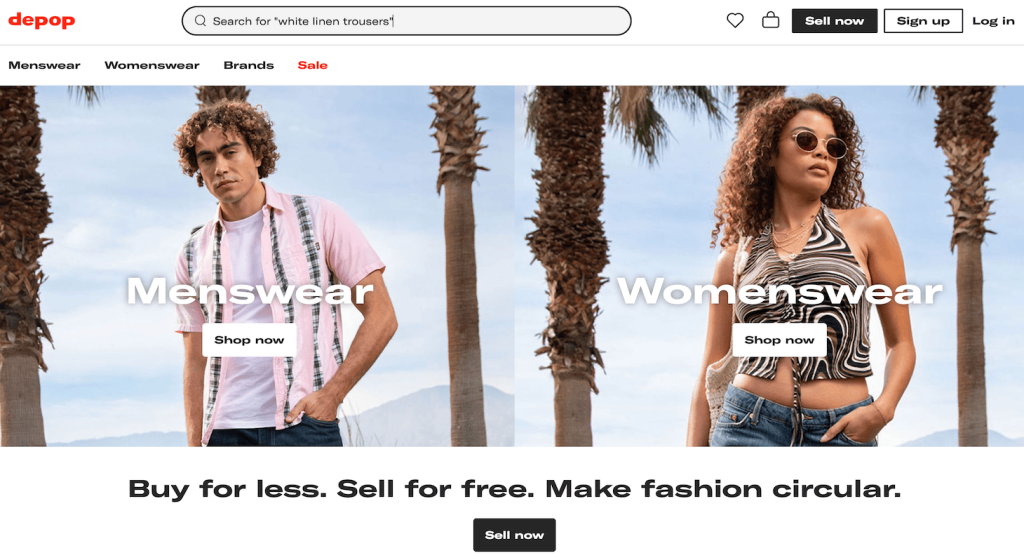
15. Depop
Depop is a fashion marketplace that mixes social media vibes with ecommerce in a way that really clicks with younger crowds. It’s a cool spot where you can buy, sell, and discover fashion pieces while connecting with a community. With a focus on trendy, second-hand, and sustainable fashion, Depop has turned into a go-to place for young fashion lovers hunting for unique styles and eco-friendly options.
Fees Charged: 10% commission per sale plus payment processing fees.
Best For: Sellers offering fashion, accessories, and vintage clothing to a youthful audience.
Must Knows:
- Social selling features enhance engagement.
- Competition is high within popular categories.
- Limited to fashion and accessories, making it niche-focused.
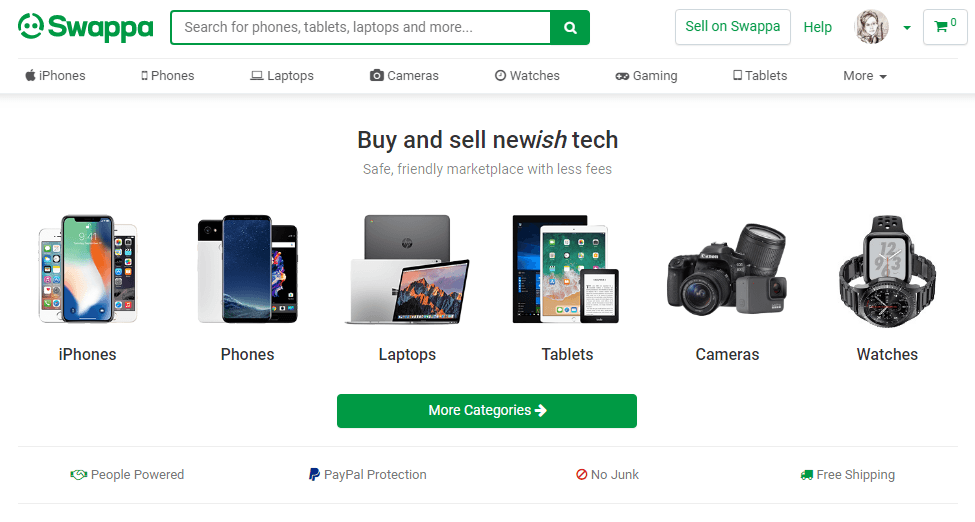
16. Swappa
Swappa is a go-to online marketplace for buying and selling used tech products like phones, laptops, tablets, and more. It’s a trusted place where the process is secure and straightforward for both sellers and buyers. You can be sure that transactions go smoothly and that all products are in good working condition. So, whether you’re planning to upgrade your phone or snag a new laptop on a budget, Swappa has a wide range of options to fit your needs and wallet.
Fees Charged: No seller fees; buyer pays the fee as part of the purchase.
Best For: Sellers specialising in used electronics and tech products.
Must Knows:
- No direct fees for sellers; buyers cover the costs.
- Niche audience focused on tech.
- Limited to technology products.
Tips for Selling on Multiple Online Selling Sites
Expanding your business across multiple online marketplaces is a powerful way to reach a wider customer base and increase your brand’s visibility. However, managing sales on various platforms can come with its own set of challenges. Here are some key tips for maximising success when selling across multiple online selling sites:
Expand Your Reach to a Broader Customer Base
Selling on different platforms allows you to tap into each platform’s unique audience, giving you access to millions of potential customers. Diversifying your presence ensures that your products are visible across various customer demographics, increasing your chances of making more sales.
Increase Brand Exposure and Reputation
By listing your products on multiple sites, you can strengthen your brand presence and credibility. Consistent branding and positive reviews across various platforms will help build trust with a wider audience, establishing your business as a reputable and reliable seller.
Be Aware of Potential Inventory Management Challenges
Managing inventory across several platforms can become complex, especially when stock levels fluctuate. To avoid overselling and keep your operations smooth, consider using Lofko, an order and inventory management software that centralises all your orders from multiple channels.
ShipMarvel makes it easy to manage your inventory in real time, ensuring you always know what’s in stock and where it’s going.
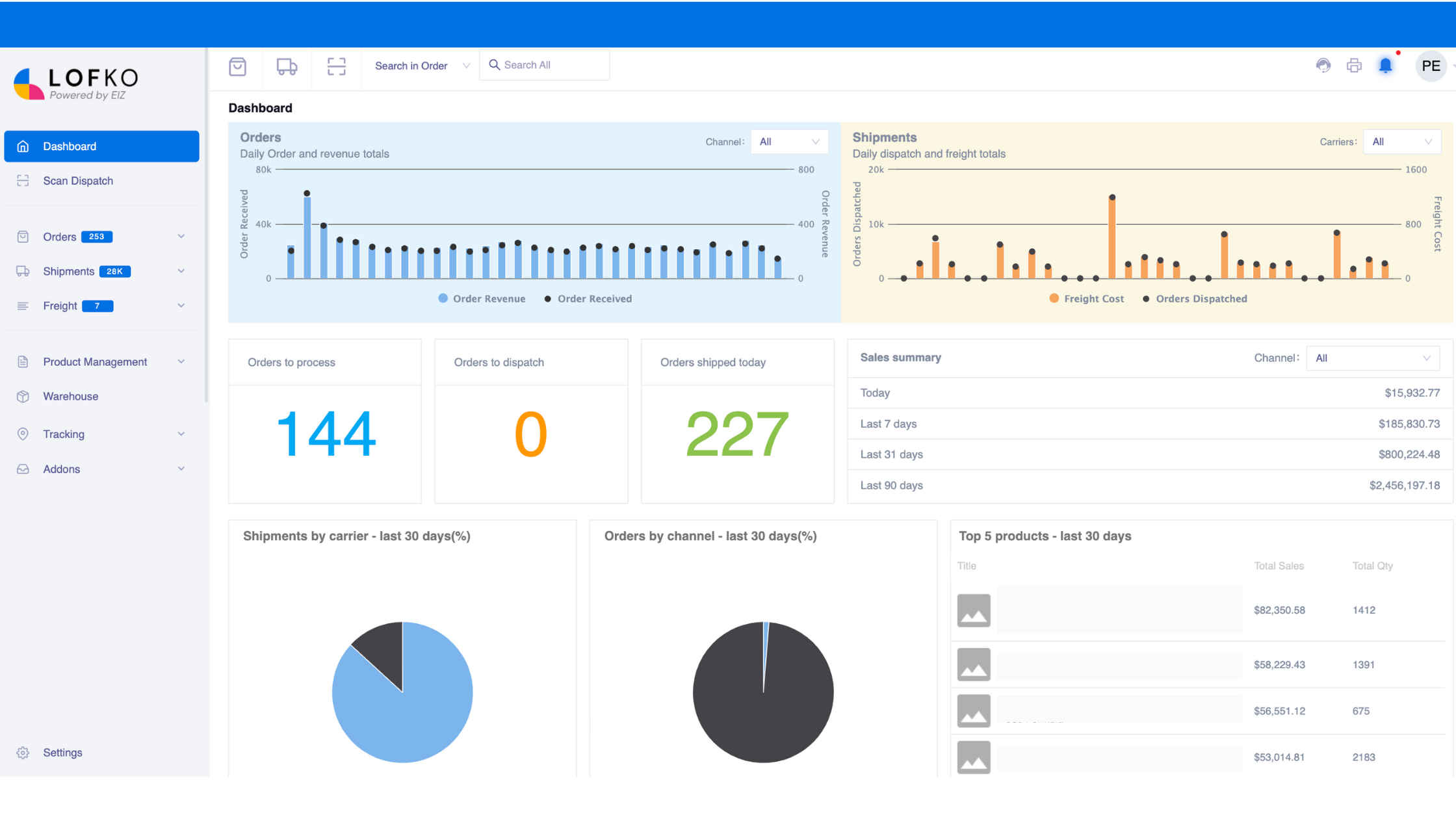
Streamline Your Fulfilment Process
When selling on multiple marketplaces, it’s essential to have a streamlined fulfilment process. ShipMarvel integrates seamlessly with various platforms, consolidating all your orders in one place and automating your shipping and fulfilment processes. This not only saves time but also minimizes errors, allowing you to focus on growing your business.
Expanding your presence on multiple online selling sites can significantly boost your business, but having the right tools and strategies in place—like leveraging Lofko—ensures your operations stay efficient and your customers remain satisfied.
Book your free demo and see how Lofko can empower your ecommerce business.
Final Thoughts
Thank you for exploring these diverse online selling platforms with us. Whether you’re an artist, a vintage enthusiast, a fashion lover, or a tech wizard, there’s a marketplace that can match your unique offerings and connect you with the right audience. Remember, the key to success in the online marketplace lies in choosing the right platform, maintaining consistent branding, and employing smart inventory and fulfillment strategies. We hope this guide has equipped you with the insights and tools you need to thrive in the dynamic world of online selling. Happy selling!
FAQs
What is an online marketplace?
An online marketplace is a digital platform where multiple sellers list their products for sale. Marketplaces like Amazon, eBay, and Etsy connect buyers and sellers, providing a central location to browse, purchase, and sell products across various categories without the need for sellers to set up their own online stores.
How do online marketplaces work?
Online marketplaces function as intermediaries between buyers and sellers. Sellers create listings for their products, and buyers search and purchase items through the platform. The marketplace often manages payment processing, and in some cases, shipping logistics (e.g., Amazon’s FBA service), while charging transaction fees or listing fees for their services.
What are the benefits of selling on an online marketplace?
Selling on online marketplaces allows businesses to reach a larger customer base without the need to build their own ecommerce website. It provides access to built-in traffic, marketing tools, and infrastructure support like payment processing and fulfillment options, making it easier for sellers to start selling products quickly.
Are there fees associated with selling on online marketplaces?
Yes, most online marketplaces charge fees, which may include listing fees, transaction fees, final value fees, and subscription fees. These fees vary based on the platform and the type of product being sold. Understanding each platform’s fee structure is essential for sellers to manage their costs and price products competitively.
How do I choose the best online marketplace for my business?
To choose the best online marketplace, consider factors like your product type, target audience, and the marketplace’s fee structure. Platforms like Amazon and eBay are ideal for broad product categories, while niche platforms like Etsy and Depop cater to specific audiences, such as handmade crafts or vintage fashion. Evaluate the tools available for inventory management and fulfillment to ensure they align with your business needs.